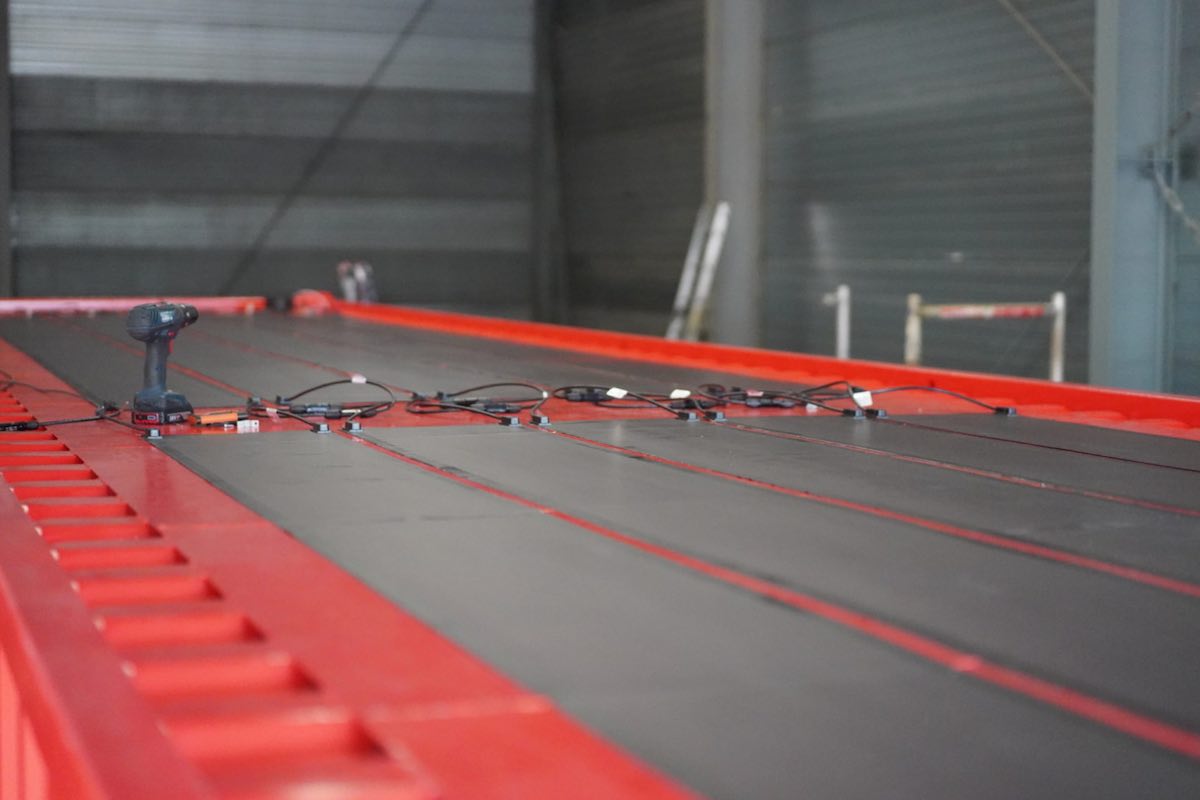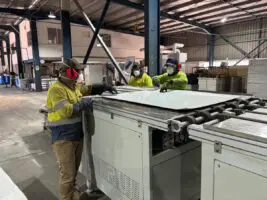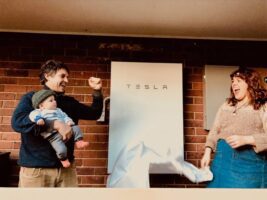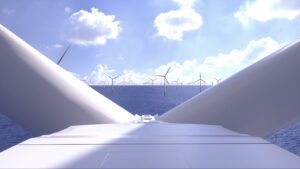Fortescue Future Industries has tipped new funds into Dutch thin-film PV maker Hyet Solar, in a move to fast-track the delivery of a Netherlands-based factory that aims to produce at least 40MW of low-cost solar modules a year.
FFI said on Tuesday that it has joined Dutch investment fund Teslin Participates in providing an undisclosed sum of “new growth capital” to Hyet Solar, the PV and hydrogen tech specialist in which FFI owns a majority stake.
The move is the latest by the green energy arm of Andrew Forrest’s Fortescue Metals Group to shore up a ready supply of low-cost, easy to deploy solar modules, which will be a crucial ingredient of FFI’s plans to produce 15 million tonnes of green hydrogen a year by 2030.
FFI acquired a 60 per cent stake in Hyet in October 2021, hitching its renewable hydrogen wagon to the company’s flexible and lightweight “Powerfoil” solar technology, which combines perovskites and silicon and promises a significantly lower levellised cost of energy than traditional silicon modules.
At the time of the purchase, FFI chief executive Julie Shuttleworth said the company had already begun designs for a 1GW Powerfoil solar factory in Australia, which has since been proposed for construction in Gladstone, Queensland.
FFI has also gained Queensland state government approval for what it claims will be the world’s biggest factory for green hydrogen electrolysers, also at what will be known as the Gladstone Global Green Energy facility. It is working on that project with US-based company Plug Power.
“Green hydrogen is the only form of hydrogen that helps tackle climate change,” said Shuttleworth in a statement on Wednesday.
“We are working with Hyet Solar to ensure we have the best and most efficient solar technology at our fingertips to generate the level of green hydrogen the world needs.
“Already we have a memorandum of understanding in place with E.ON to supply Germany with 5 million tons per annum by 2030.”
In his own statement, Hyet Solar founder and director, Rombout Swanborn, said the investments of Teslin and FFI would put the company in “a very attractive position” to rapidly roll out its business worldwide.
“The Hyet Group of companies aims to develop, manufacture and sell innovative key technologies that will accelerate the energy transition,” Swanborn said.
“HyET Solar has the ambition to manufacture at large scale very low-cost PV products offering innovative application possibilities.”
Teslin Participates fund manager, Jan-Jaap Bongers, said the investment aimed to both accelerate the roll-out of the Dutch factory, and realise a listing on Euronext Amsterdam in a few years.
“We believe cheap green electricity presents one of the keys to solve [the climate] challenge, either by using it directly, or in the production of large-scale green hydrogen,” Bongers said.
“Powerfoil has the potential to deliver abundant green solar powered electricity at record low cost and at industrial scale.”
As RenewEconomy has reported, Hyet claims that the ultra-low weight (0.6 kg/m2, or a small fraction of standard panels) and cheap materials used for its solar technology means it can be installed at a 30% reduction on the levellised cost of electricity, compared to traditional crystalline-Silicon glass panels (c-Si).
So far, the technology has only been installed in small capacities, including an IKEA rooftop in the Netherlands, fuel stations in Oman and Indonesia, and on a cruise ship operating in the Galapagos Islands.
A spokesperson for FFI said there was no update on the progress of plans for the Australian Powerfoil factory.








